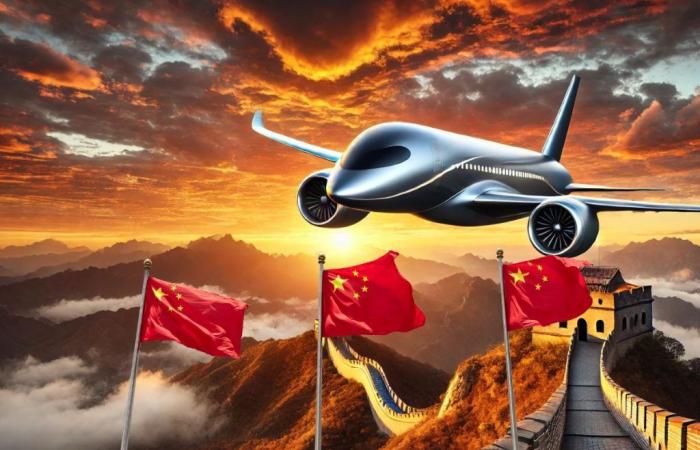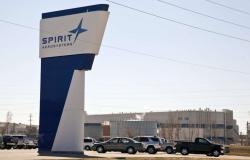
A leap forward for electric aviation.
Chinese company Contemporary Amperex Technology Co. Ltd (CATL), known for its battery manufacturing, recently announced a major breakthrough in the electric aviation sector. The company plans to launch an 8-ton electric aircraft capable of covering a distance of up to 2900 km by 2027. This development could mark a turning point in the civil aviation industry with significant innovations in capacity battery.
Read also:
Cutting-edge batteries for a new era of aviation
At the 15th New Champions World Economic Forum, also known as the Summer Davos Forum, Robin Zeng, Chairman of CATL, shared details about the company’s newly developed batteries. These batteries, specially designed for electric aviation, promise an energy density of up to 500 Wh/kg per cell, double that of standard electric vehicle batteries currently on the market.
A capacity of 12 Boeing 747s and larger than a football stadium! The new behemoth of the air is intended to transport wind turbines around the world
First tests and future perspectives
CATL has already carried out flight tests with a 4 tonne electric aircraft and is now considering moving to heavier aircraft, up to 8 tonnes. These trials are crucial to taking the next steps towards commercialization of the technology. The success of these tests could usher in a new era of greener air travel.
Collaboration et innovation
CATL’s advancement in electric aviation is in collaboration with Chinese state-owned aircraft manufacturer, Commercial Aircraft Corporation of China. Together, they are exploring opportunities to transform air travel through battery innovations, essential to supporting the long distances envisioned.
Challenges and alternative solutions
Electric aviation presents notable challenges, particularly regarding battery capacity and aircraft reliability. In response, many organizations are turning to sustainable aviation fuels which, while requiring engine modifications, offer a more reliable alternative in the short term.
Lessons learned from other experiences
Last year, NASA canceled its X-57 electric plane project without conducting an experimental flight, citing safety concerns related to its electric motor. However, the US space agency stressed that the project had provided valuable data for the future of electric aviation.
This Edison invention is more than 100 years old, yet its rediscovery shocked the energy world and promises to revolutionize hydrogen production
This article explores CATL’s commitment to the development of a revolutionary electric aircraft planned for 2027, capable of traveling up to 2900 km. With significant advances in battery technology, the company positions itself at the forefront of innovation in electric aviation, while facing the challenges inherent in this new technological frontier.
Source : China Daily





